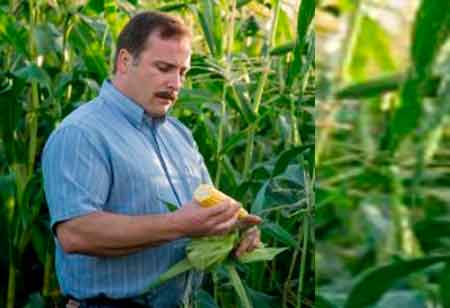

Thank you for Subscribing to Agri Business Review Weekly Brief

For more than 20 years, Lamb Weston and our grower partners have been working together to advance sustainable farming practices. We believe sustainable agriculture must be a win-win: a virtuous cycle that supports growers’ livelihoods and the health of the soil and planet. And we’re not the only ones – according to Sustainable Brands, 75 percent of U.S. consumers surveyed are concerned about the environmental impact of the products they buy. (Sustainable Brands, 2022).
We know sustainability won’t happen without practicality, and we work closely with growers to solve common barriers to adoption like cost, tech limitations, or unclear results. Lamb Weston’s goal is to equip growers with practices and tools that work — environmentally and economically — so they can sustain their operations, families, and land for the long-term.
Based on our research, engagement, and trials, we see three forces that are now emerging as the future of sustainable agriculture, scaling up from the soil’s micro biome to the level of the farm to the entire planet:
• The Field: advances in soil science are opening the next frontier of sustainable crop production. Healthier soil stores more carbon and requires fewer inputs.
• The Farm: more practical agriculture technology is equipping growers to monitor, analyze, and adjust everything happening on their farm in real-time, for greater efficiency and deeper insights. Precise agriculture minimizes soil disturbance and reduces usage of fuel and related carbon emissions.
• The Planet: farms are responding to climate change by decreasing greenhouse gas emissions, sequestering carbon, and increasing resilience to climate impacts. Climate-smart agricultural practices cultivate soil health.
The Field: Advancing the Science of Soil Health
As we continue to advance soil science for the future of sustainable potato agriculture, many of the long-standing requirements in our Grower Guide already support soil health, such as cover cropping to prevent erosion and crop rotation to break pathogen cycles. Lamb Weston previously pioneered the use of Serenade Prime — a beneficial bacteria that lives in potato roots and improves the uptake of nutrients for larger, better potatoes. Lamb Weston first began trials of Serenade more than 10 years ago, and it is now a mainstay for many growers’ programs.
As we continue to advance soil science for the future of sustainable potato agriculture, many of the long-standing requirements in our Grower Guide already support soil health.
We partner with universities, researchers, and manufacturers to identify innovative practices, products, and technologies. They regularly test bio-stimulants to find which work best for growers, including a recently trialed biological solution made of kelp that provides rich micronutrients and minerals to the soil. We are also experimenting with a technique that extracts and cultivates native algae from the soil, then sprays it through irrigation pivots to promote the growth of good bacteria.
The Farm: Making Modern Agriculture Practical
Lamb Weston is piloting technologies to find those that support more efficient use of resources. Equipped with these technologies, growers can closely monitor and fine-tune their operations to enhance sustainability, while reducing costs.
Remote sensing technology has revolutionized crop monitoring, providing valuable insights into crop health and growth throughout the season. Aerial and satellite imagery allows growers to promptly detect and correct irrigation issues, while real-time crop monitoring helps them apply the right products at the right times, for better health and higher yields.
The Planet: Building Climate Resilience & Mitigation Strategies
As we work toward a carbon neutral future in our field operations, standard practices like cover cropping and integrated pest management to help reduce emissions and keep biomass in the soil are built into our grower contracts. We are now expanding this impact with research into new tools and varietals. Potato varietals offer an important part of the sustainability solution. By developing new varietals, and matching varietals with soil type, we can grow crops that require less water and fewer inputs, offer greater nutritional efficiency, and are more resilient to disease and extreme weather.
Measuring a farm’s greenhouse gas (GHG) emissions is critical to reducing our carbon footprint. That’s why Lamb Weston partners with the USDA’s Climate-Smart Commodities program and Regrow. The Climate-Smart Commodities program helps reduce the carbon footprint of potato agriculture by bringing together universities, government agencies, private-sector companies, and Native American tribes to identify more climate-resilient practices such as reduced tillage, cover cropping, and residue management. Regrow is one of the most sophisticated measurement tools available to help growers identify emissions sources and monitor sequestration processes. Regrow leverages remote sensing technology and DeNitrificationDeComposition (DNDC) modeling to provide reliable and actionable information to growers, making it easier to improve their day-to-day sustainability practices.
Cultivating the Agriculture Ecosystem for Continuous Progress
Sustainability is about our shared future. It takes collaboration, engagement, and partnership across sectors and specialties. We can only find enduring solutions if we work together.
We’re proud to have helped found industry-leading sustainable standards and develop shared metrics that reflect the priorities of our customers and consumers. We are continually engaging with academic researchers, innovative manufacturers, government agencies, and the overall sustainable agriculture ecosystem. Most of all, we remain committed to our grower partners — engaging to identify and implement the practices that will support their land and their livelihoods for the long-term.